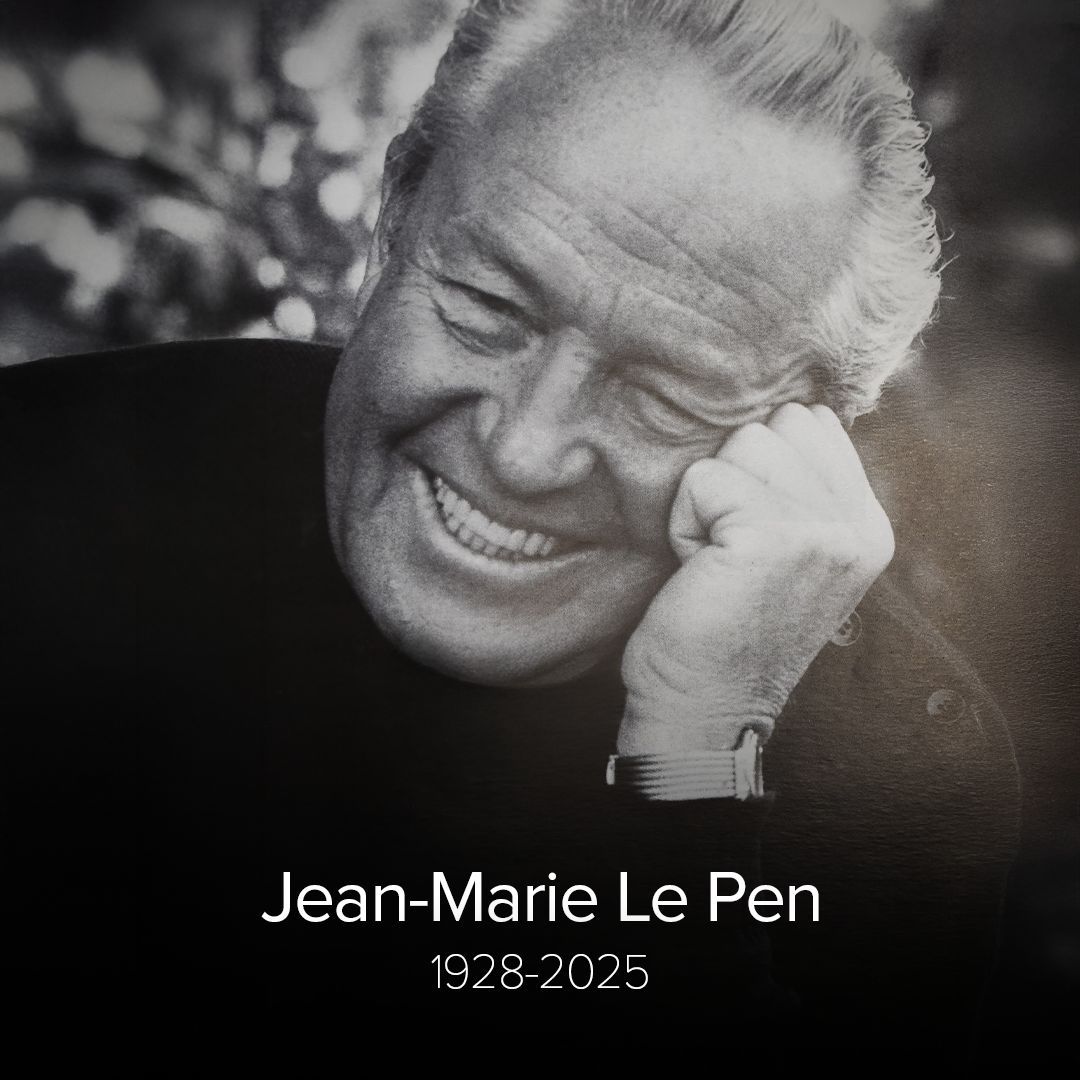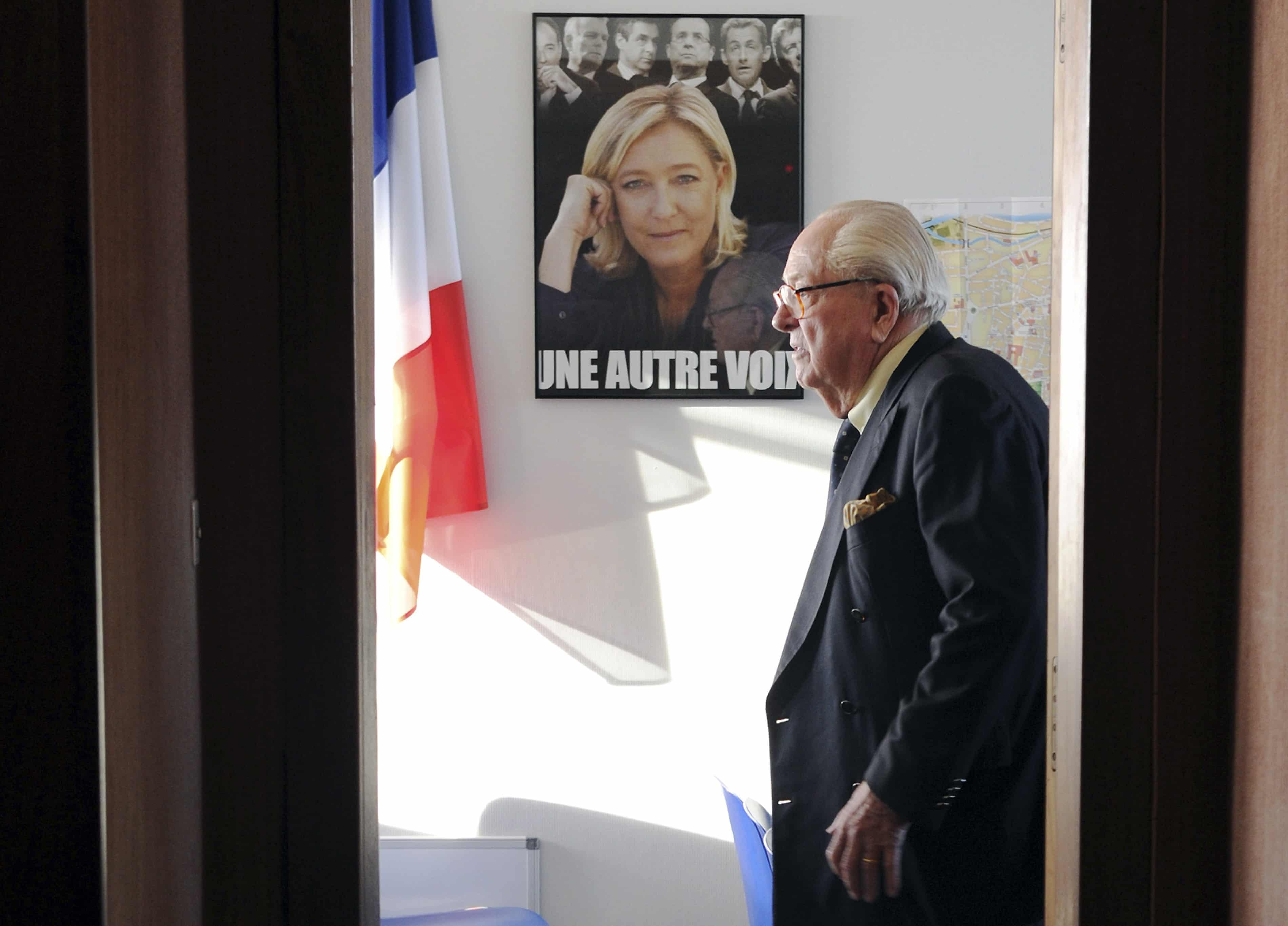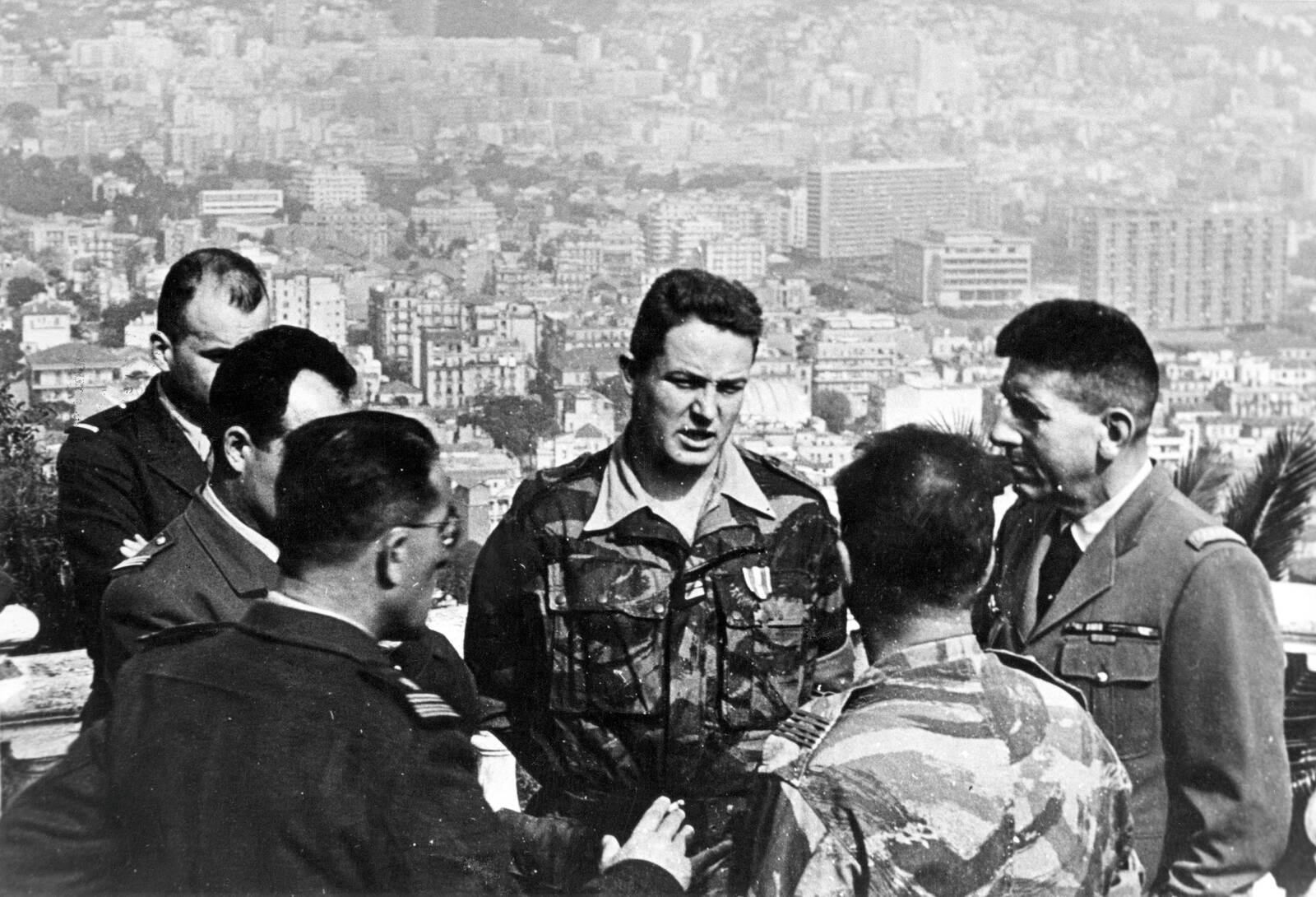Jean-Marie Le Pen: A Godfather Who Succeeded in Lifting the French Far-Right from Marginalization

“Le Pen was convicted of incitement to hatred, discrimination, racism and violence at least six times.”
Jean-Marie Le Pen is a name that has made headlines more than once, whether when he was close to becoming president of France two decades ago, or his disagreements with his daughter, Marine Le Pen, years ago.
The controversial life of the founder of the far-right movement in its modern form in France came to an end on January 6, 2025, when he breathed his last at the age of 96, after a long struggle with illness.
He was a candidate for the presidential elections five times, and reached the second round of the presidential elections in 2002.
During more than 60 years of his political life, he has sparked widespread controversy at many points, and has been convicted by the judiciary at least six times.
However, the hard-line man has never expressed any remorse for his repeated mistakes, including his failure to acknowledge the gravity of the Holocaust and the inequality between races.
Jean-Marie Le Pen’s death comes at a critical time for his daughter, who faces a possible prison sentence and a ban from running for political office if convicted in the ongoing embezzlement trial in France.
Populist Politician
The godfather of the far-right was born in 1928 in Morbihan, a small coastal town in Brittany, northwestern France.
He was the only son of a modest family whose father was a fisherman, and received a typical education in rural France.
The turning point in his life was the disappearance of his father in the summer of 1942, during World War II (1939-1945), which pushed the young man towards far-right ideas.
After obtaining a university degree in philosophy, he entered the law school in Paris in October 1947 and graduated from higher education in political science.
He was a master of rhetoric and oratory, so Jean-Marie Le Pen joined the right-wing Le Corbeau (The Raven), to fight communism, and was elected its president in 1949.
In 1954, he volunteered to participate in the fighting with the French army in what was known as Indochina (Cambodia, Laos, Myanmar, Thailand, Vietnam, and part of Malaysia) at the time.
Two years after his return, he was discovered by politician Pierre Poujade, who included him in the French Union for the Defense of French Traders and Artisans.
This union was called Poujadisme after its founder, and it turned into a political party that resisted tax audits and refused to pay taxes by traders and defended the rights of simple professions.
The party swept the political scene in France and became a symbol of populism in the country, and even had 52 deputies in parliament in 1956, including Jean-Marie in his first electoral term.
After Algeria gained independence from France in 1962, he turned to anti-Gaullism, the opposition to France founded by Charles de Gaulle, which he believed oppressed the country's lower social classes.
Jean-Marie Le Pen was married to Pierrette Lalanne, the mother of his daughters Yann, Marine and Marie-Caroline, and then remarried to Jany Le Pen.

Recurring Scenario
In 1972, Jean-Marie Le Pen founded the National Front with Francois Duprat, and led the party from 1972 to 2011.
Later, he was elected as a Paris mayor in 1983, and as a regional councillor of Ile-de-France in 1986.
He did not succeed in realising his ambition to become president, although he surprised everyone on 21 April 2002, when he was 73 years old, by qualifying for the second round of the elections.
But a broad coalition of political forces dashed his dream, as millions of French people participated for two weeks in marches against racism and its political manifestation, which led to the easy re-election of his rival, former President Jacques Chirac.
He, along with his daughter Marine and other figures in the National Rally party, faced accusations in corruption cases, related to the embezzlement of funds from the European Parliament through fictitious jobs.
The European Parliament estimated the financial damages incurred by him at around €3 million, and demanded the return of only €2 million, explaining that €1 million had already been paid.
He became honorary president for life of the National Front after his daughter Marine took over the party's leadership in 2011.
However, she expelled him from the party in 2015, after he refused to tone down his inflammatory statements, while she was trying to improve the party's image. She only succeeded in expelling him in 2018 after long legal battles.
Jean-Marie Le Pen described as a betrayal his daughter's decision to change the party's name in 2018 to National Rally, and said she should marry to lose her family name.
After leaving the European Parliament, Jean-Marie Le Pen became more reserved, and only occasionally commented on political news.
It is noteworthy that Jean-Marie Le Pen's qualification for the second round of the 2002 presidential election was an unprecedented surprise, but it has become a habit for his far-right party, as his daughter Marine repeated the same scenario in the 2017 and 2022 presidential elections.
Following the victory of the National Rally in the 2024 European elections, President Emmanuel Macron dissolved parliament, giving Marine the possibility of her far-right party coming to power, a dream that everyone thought had finally come true, but which was shattered once again by the Republican Front.

Controversial Statements
Jean-Marie Le Pen is known for his populist statements, through which he revived the ideas of the far-right, some of which were illegal, which led him to stand before the courts on several occasions.
He was also known for his fiery speeches against immigration, Muslims and multiculturalism, which gained him widespread supporters and opponents.
Among these issues are his views on the Holocaust, which he described as a mere detail in the history of World War II, in addition to his praise for France’s Vichy government that collaborated with the Nazi occupiers.
Le Pen was also convicted for challenging crimes against humanity. In 2014, he stated that the deadly Ebola virus could be a solution to the world's population explosion.
Two years later, he was convicted of incitement to hatred, discrimination, racism and violence for statements he made in a public meeting.
Jean-Marie Le Pen was also accused of participating in torture during the Algerian revolution, as revealed by the newspaper Le Canard Enchainé.
Le Monde also published a series of testimonies that revealed the methods of torture that Le Pen participated in when he was a volunteer lieutenant in the Parachute Regiment during the Algerian War (1954-1962).

Historical Figure
Immediately after the announcement of Jean-Marie Le Pen's death, messages of condolence and mixed reactions spread.
One of the most notable responses was that of the National Rally leader Jordan Bardella, who paid tribute to Le Pen, saying that “he served France and defended its identity and sovereignty during his service in the French army in Indochina and Algeria, and expressed the voice of the people in the National Assembly and the European Parliament.”
Eric Zemmour, who tried to challenge the Le Pen family’s hold on the French far right by running against Marine Le Pen in the 2022 presidential election, said “Jean-Marie was among the first to warn France of the existential threats it faced.”
Sebastien Chesnot, vice president of the National Front, saw the death of Jean-Marie Le Pen as the loss of a great national figure, a visionary and a brave man.
Le Pen’s granddaughter Marion Marechal, a member of the European Parliament, posted on X, stating that her grandfather could rest easy and pledging to pursue his mission.
Centrists allied with President Emmanuel Macron attempted to thread the needle, issuing statements that effectively said merely that he existed.
Prime Minister Francois Bayrou delivered one such anodyne reaction, describing him as a figure of French political life.
Conservative senator Bruno Retailleau said “a page in French political history has turned and that Le Pen had undoubtedly left his mark on his era.”
President Macron’s office similarly walked on eggshells and called Le Pen, who handed his party’s leadership over to his daughter in 2011, “a historic figure of the far right whose role in public life is now a matter for history to judge.”

“Respect for the dignity of the dead and the grief of their loved ones does not erase the right to judge their actions. Those of Jean-Marie Le Pen remain intolerable,” said Jean-Luc Melenchon, leader of the far-left France Unbowed party.
Louis Boyard, one of the youngest French lawmakers and a rising star in France Unbowed, said “Le Pen deserves no tribute.”






